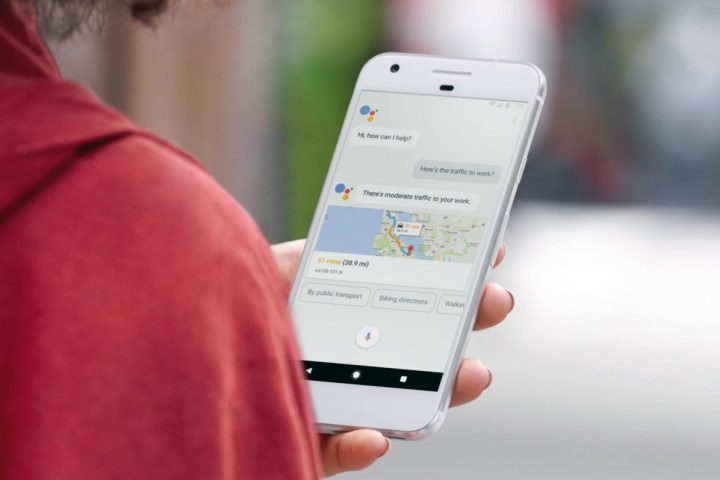
Assistant lets users perform certain actions with their voice by saying “OK Google,” or by pressing and holding the home button. You can ask it about your upcoming day — and Assistant will recite your calendar events, the weather, and even put on a podcast of your choice — or you can use it to control your smart home devices. It can make quick translations, find the nearest restaurant, pull up your flight information, and a whole lot more. It’s conversational and it understands contextual search so you don’t need to repeat queries or commands more than once.
Assistant originally debuted in Google’s messaging app, Allo. It then went on to be a prominent feature of the Google Pixel, the company’s first phone “made by Google,” and it’s also what powers Google Home, an Amazon Echo competitor. It’s also available now on Android Wear, and it’s heading to Android Auto as well as Android TV.
Smartphones running Marshmallow or Nougat — basically version 6.0 or higher — have been able to use Assistant since March. The best part was that you didn’t have to wait for a version update from Google or your device manufacturer, which would have taken months to roll out. Instead, version 6.13 or higher of the Google app brought the Assistant functionality.
There are rules governing which devices are eligible to utilize Assistant, though. Specifically, you’ll need to have Google Play Services installed, so phones in China are not able to utilize Assistant. Secondly, your device will need to have at least 1.5GB of RAM, and a 720p or higher screen resolution.
For those with a phone running Lollipop — which was released in 2014 — the update should appear on your device soon. But it will only be available if you have set the language to English in the U.S., India, U.K., Canada, Australia, and Singapore. It will also be available to those who have set their main language to Spanish in the U.S., Spain, and Mexico — along with users in Italy, Japan, Germany, South Korea, and Brazil.
As for Android tablets that are running 7.0 Nougat and 6.0 Marshmallow, the update will be rolling out over the next few weeks. But it will only be available to those in the U.S. who have their default language set to English.
Update: Google Assistant will be available on phones running Android Lollipop and tablets running Nougat and Marshmallow.
Editors' Recommendations
- A new Google Pixel Tablet is coming, but it’s not what you think
- Android 15 release date: When will my phone get the update?
- Google just released the first Android 15 beta. Here’s what’s new
- Android phones finally have their own version of AirTags
- I’ve finally given up on the Google Pixel Tablet